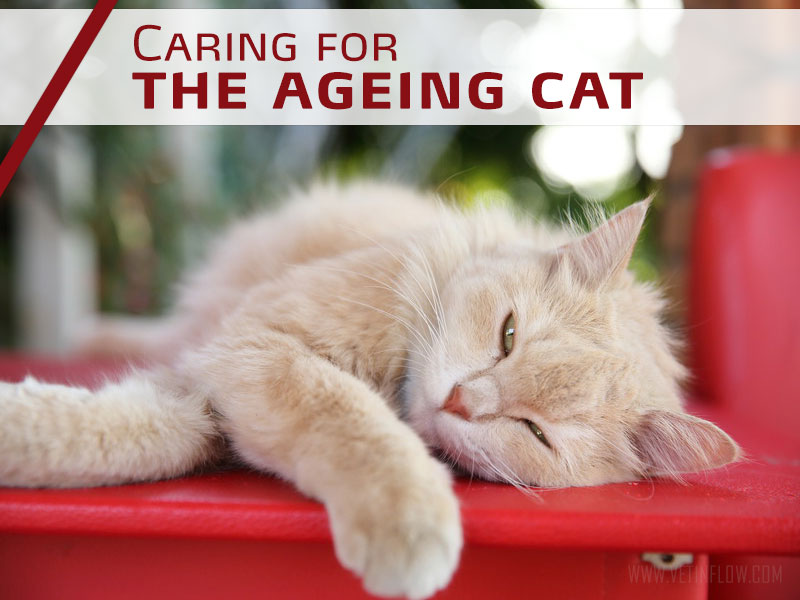
Caring for the ageing cat
Cats who are between 8 and 11 years old are usually considered middle aged and cats over 12 years old are considered senior. As years go by, there are quite a few changes you can expect to see in your older cat.
The first thing owners usually notice is that their cat seems to have slowed down a bit, being less energetic and spending more time napping in warm spots.Their eyesight and hearing may progressively deteriorate and their coat often loses shine. Their skin also becomes less elastic and it's not uncommon for white hairs to appear.
There are several things you can do to help your older cat enjoy its golden years living a happy, active and fulfilling life.
Diet
Some cats might put on weight as they get older, since they are much less active while others might lose weight. This could be due to the fact that cats lose their appetite along with their sense of smell or due to some underlying medical condition. There are specially formulated senior diets available and prescription diets (if necessary) that can be of great help. Talk to your vet about the best option for your cat's particular case.
Comfort
Older cats greatly appreciate a soft, warm and comfortable bed, preferably in a quiet place of the house. Litter boxes, food, water, sleeping spots and hiding places should be available and easily accessible to your cat.
It's very common for older cats to suffer from arthritis or degenerative joint disease, a chronic painful condition that often causes mobility issues. If you cat suffers from arthritis having food and water bowls slightly raised from the ground can be very helpful. Litter boxes should also be large and low sided, in order for the cat to be able to get in and out of the box without any difficulties.
Take the time to help your cat with grooming, as older cats tend to groom themselves less and will benefit from the extra help. It's also important to keep an eye on their claws. Since older cats are much less active their claws can grow too long and because they are curved, they can even grow into the cat's paw. For this reason, in some cases, it might be necessary to regularly trim their claws.
Health care
Common health problems of older cats include arthritis, dental disease, hyperthyroidism, kidney disease, heart disease, diabetes, lumps or growths (which can turn out to be either harmless or cancerous), dementia and reduced brain functions.
It is recommended for senior cats to keep up their vaccination and worming plans and to visit the vet for check-ups twice a year. It is not uncommon for owners to assume that a certain health issue is related to your cat's advanced age when it could actually be due to a treatable medical condition.
Would you like to know more about cats? Check our Feline Courses:
Feline courses
Read the previous article: Kennel cough - The most widespread infectious disease of dogs in the UK


